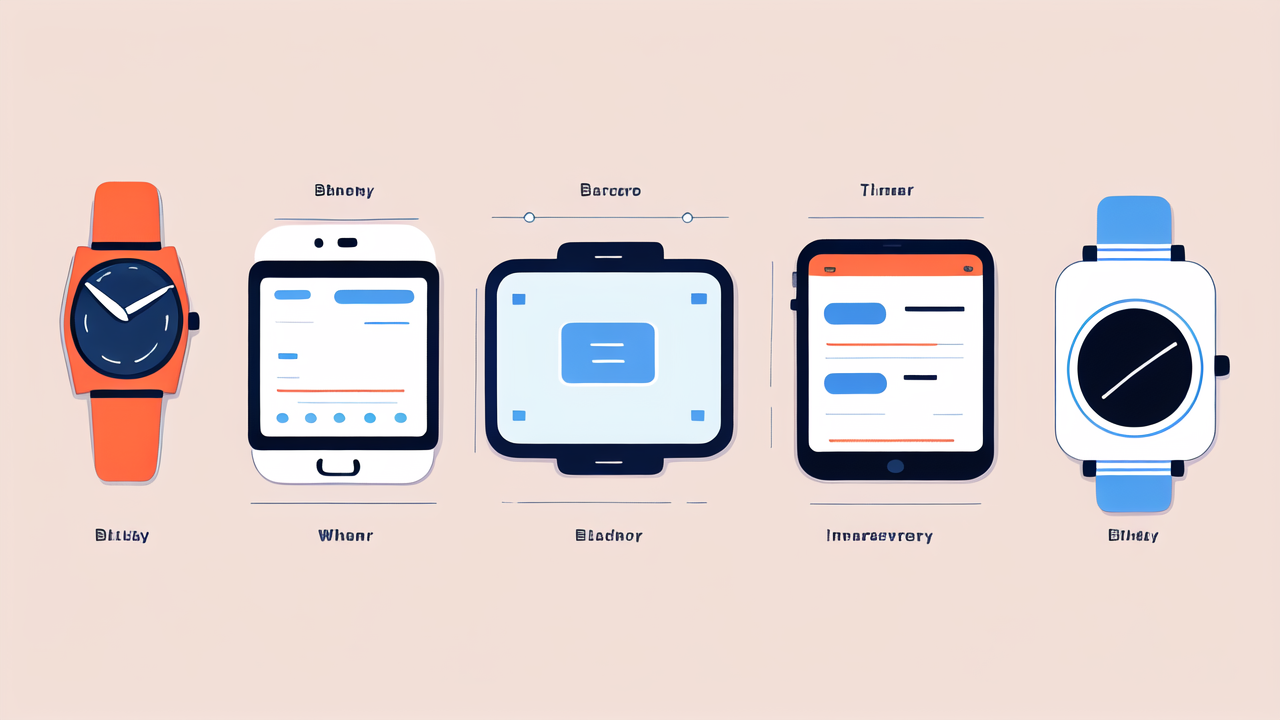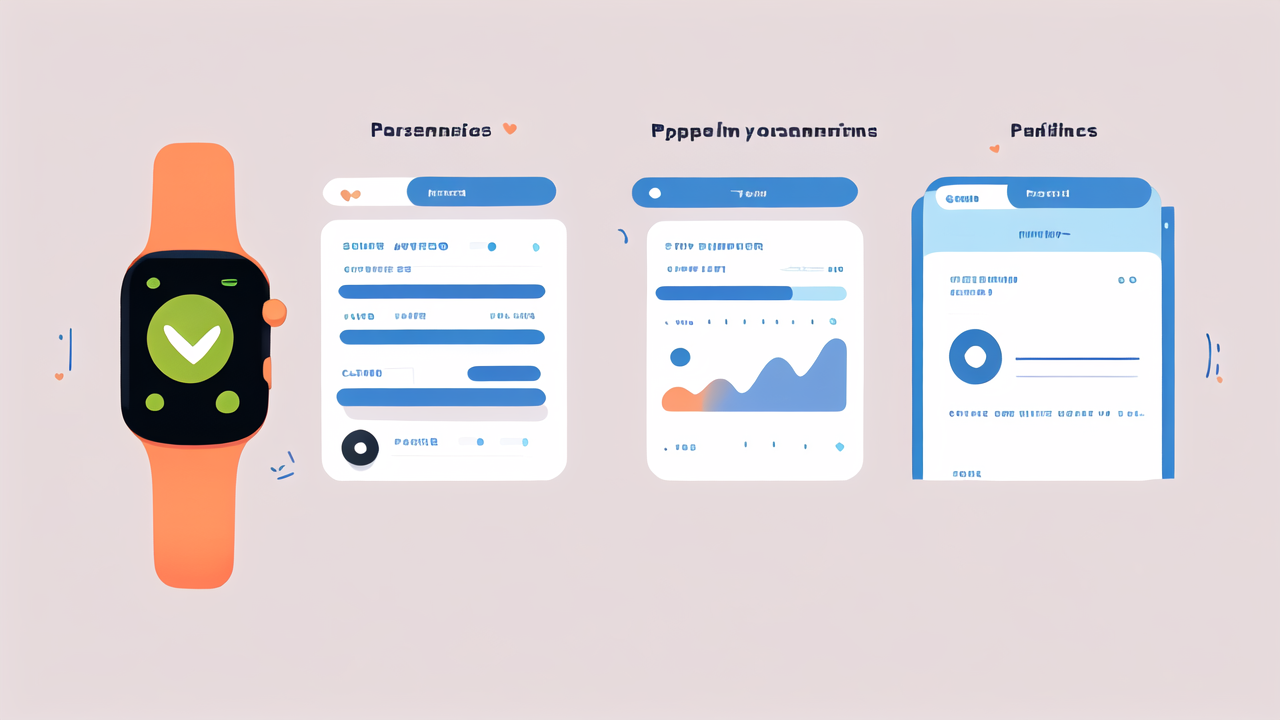The Advent of Smart Watches: Bridging Digital and Analog Technology
Pioneering Devices and Market Inception
Smart watches have come a long way since their inception. The first models were basic digital watches with

added features. They could store small amounts of data and perform simple calculations. As technology
advanced, so did these devices. Early smart watches paved the way for more complex gadgets. They showed that
wearable tech could be both useful and stylish. Brands like Casio and Timex were among the first to explore
this new market. Their products set the stage for future innovations in wearable technology.
Technological Innovations Driving Smart Watch Adoption
Several key innovations have driven smart watch adoption. Improved battery life has made these devices more
practical for daily use. Touchscreens have made them easier to navigate and more user-friendly. Wireless
connectivity has expanded their functionality, allowing for notifications and data syncing. The
introduction of apps has turned smart watches into versatile tools. Health tracking features have made them
essential for fitness enthusiasts. These advancements have transformed smart watches from novelties into
everyday necessities for many users.
Comparing Smart Watches with Traditional Timepieces
Smart watches offer many advantages over traditional watches. They provide more than just the time,
offering a range of digital features. However, they lack the timeless elegance of classic timepieces.
Battery life is a concern for smart watches, while traditional watches can run for years. Smart watches
require regular updates, while traditional watches are low-maintenance. The choice between the two often
comes down to personal preference and needs. Some users opt for both, wearing a smart watch for fitness and
a traditional watch for formal occasions.
Fitness and Health: The Emergence of Smart Watch Ecosystems
The Role of Fitness Watches in Personal Health Management
Fitness watches have revolutionized personal health management. They track various health metrics, from

steps taken to heart rate and sleep patterns. This data helps users make informed decisions about their
health and fitness goals. Many fitness watches offer guided workouts and personalized fitness plans. They
can remind users to move more and provide motivation to stay active. Some models even monitor stress levels
and suggest relaxation techniques. By providing real-time health data, fitness watches empower users to
take control of their well-being.
Integration of Fitness and Smart Technologies
The integration of fitness and smart technologies has created powerful health tools. Modern fitness watches
combine advanced sensors with smart features. They can track workouts, monitor vital signs, and provide
instant feedback. Many models now include GPS for accurate route tracking during outdoor activities. Some
watches can even detect falls and call for help in emergencies. The ability to sync with smartphones and
other devices enhances their utility. This integration allows for comprehensive health and fitness
tracking across multiple platforms.
Impact of Ecosystems on Consumer Choices in the United States
In the United States, smart watch ecosystems have greatly influenced consumer choices. Major brands like
Apple, Garmin, and Fitbit have created comprehensive platforms. These ecosystems include apps, online
communities, and data analysis tools. Users often choose watches based on compatibility with their existing
devices. The ecosystem can also affect the long-term value and usefulness of a smart watch. Some consumers
prefer open systems that work with various apps and devices. Others value the seamless integration offered
by closed ecosystems. The choice of ecosystem can impact everything from fitness tracking to mobile
payments.
The Future of Smart Watches in the Fitness Industry
Anticipating Next-Gen Features and Sensors
The future of smart watches in fitness looks promising. We can expect even more advanced sensors and

features. Some potential advancements include:
- Non-invasive blood glucose monitoring
- Improved sleep tracking with detailed sleep stage analysis
- Advanced stress management tools
- More accurate calorie burn calculations
- Enhanced water resistance for swimming and diving
- Longer battery life through improved power management
- Integration with smart home devices for holistic health tracking
These features will make smart watches even more valuable for fitness and health management.
The Influence of AI and Machine Learning
AI and machine learning will play a crucial role in future smart watches. These technologies will enable:
- More personalized fitness recommendations
- Predictive health alerts based on user data
- Advanced pattern recognition for early disease detection
- Improved natural language processing for voice commands
- Adaptive user interfaces that learn from user behavior
- Enhanced data analysis for more accurate health insights
- Real-time coaching and feedback during workouts
AI will transform smart watches into intelligent health companions, offering tailored advice and insights.
Potential Regulatory Changes and Their Impact on Smart Watch Market Trends
As smart watches become more advanced, they may face new regulations. These could include:
- Stricter data privacy laws to protect user health information
- FDA approval requirements for certain health monitoring features
- Standardization of health metrics across different devices
- Guidelines for using smart watch data in medical diagnoses
- Regulations on the accuracy of fitness and health tracking features
- Accessibility requirements to ensure usability for all individuals
- Safety standards for wearable technology
These potential changes could shape the future development and marketing of smart watches. They may also
impact how consumers view and use these devices for health and fitness purposes.




Leave a comment
This site is protected by hCaptcha and the hCaptcha Privacy Policy and Terms of Service apply.